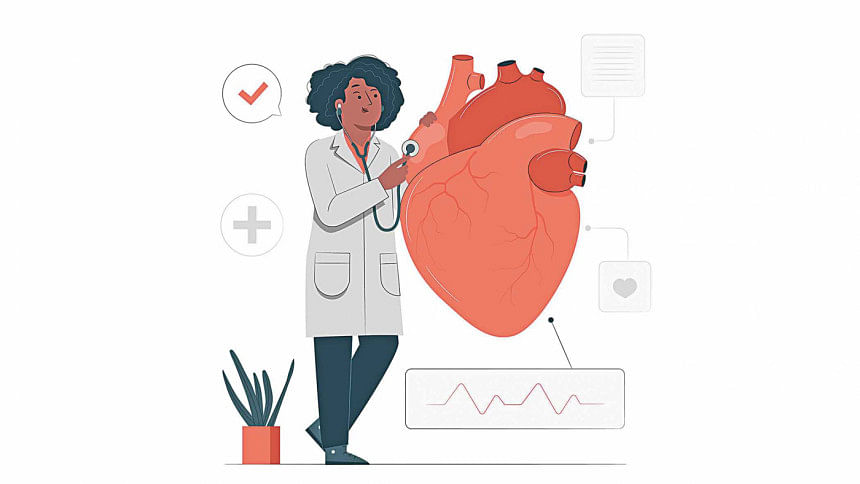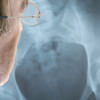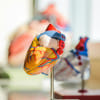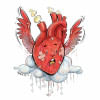Women in Cardiology: Where are we now?

When it comes to choosing a career, women are traditionally thought to be only eligible for a few professions. Cardiology is one such area where women's involvement is less noticeable than that of men.
However, the dedication of women to their profession has led to a gradual shift in this paradigm. Despite many obstacles, women with a shared love and zeal for helping people are entering the area of cardiology.
According to the Bangladesh Cardiac Society and Bangladesh Society of Cardiovascular Intervention, 661 cardiologists are working in the country, and 327 are interventional cardiologists. Some 265 (81 per cent) of the interventional cardiologists are men while 62 (19 per cent) are women, which means the ratio between male and female interventional cardiologists is 4:1.
It is evident that becoming a trained interventional cardiologist is not a simple task and given the challenges of being a woman, it is even harder for them.
"Gynaecology used to be an area of specialisation for the majority of female doctors. The idea was shared by society as well. But time has changed and many women pursue challenging fields like cardiology or medicine," said Dr Fatema Begum, a senior consultant at United Hospital. Begum decided to pursue a career in cardiology after failing to treat her father effectively after he suffered a heart attack.
"They proved that they are capable and competent if given the opportunity," said Dr Tahera Nazrin, who always dreamt of providing the best treatment in paediatric cardiology in Bangladesh. Tahera also stated that, "as a female I could prove myself, so hospitals sought my service." She is currently employed as a senior consultant and coordinator (paediatric cardiology) at Evercare Hospital, Dhaka.
JUST KEEP WALKING
It was not easy to go against the flow and success did not come easily. While working toward their career objective of becoming cardiologists, they had to fight against the patriarchal mindset and strike a balance between personal and professional life.
Despite doing well on the written exam, Fatema Begum had to undergo the selection procedure twice to receive her doctor of medicine degree as a cardiologist.
"While taking the written test a second time, I scored quite well again. My dedication to my goal was noted by the selection committee, which led to my selection," Begum said, adding that given that it was a male-dominated industry, it was somewhat hostile for women.
"When I returned home after completing my higher education overseas, I encountered discrimination. Being a woman, it wasn't warmly accepted by many because I completed my MRCP at a young age," said Dr Reyan Anis, senior consultant at United Hospital.
"In my 27 years of professional experience, I have also observed that many patients prefer male cardiologists," she added.
Professor Fazila-Tun-Nesa Malik, chief consultant cardiologist of the National Heart Foundation Hospital and Research Institute, said her journey as a cardiologist has been challenging, rewarding and very satisfying all at the same time.
"This journey has helped me evolve both as a physician and a human being," Malik added.
MOST CHALLENGING FOR YOUNG PROFESSIONALS
Looking after the family and raising children while pursuing a career can be quite challenging for young aspiring cardiologists. However, support from the family and institution is very required for them to grow.
"I am lucky that I got huge support from my family while I was a young professional. My mother used to take care of my children while I was at work but not everyone is fortunate enough to have such support," Malik said.
Echoing the same, Dr Reyan Anis said not everyone has the support of their parents.
So, there is a need to establish an institutional support system, such as daycare centres, so that every female aspiring cardiologist can get the opportunity to pursue their dream, she added.
FEMALE PATIENTS' PREFERENCE
Cardiovascular disease is becoming the most common non-communicable disease among Bangladeshi patients, which is a matter of growing concern. Moreover, the number of females with cardiovascular diseases is quite significant, according to researchers.
Considering the conservative mindset in our country, many female patients often favour female doctors.
Emphasising the need for female cardiologists, Dr Fatema Begum said a majority of female patients prefer female cardiologists from the point of maintaining privacy while doing ECO, angiogram and other tests.
"I have seen that the concept of privacy is more prevalent among female patients from remote areas and although there is no difference in the quality of care provided by male or female cardiologists, many patients feel more at ease with female physicians,'' said Maisha Samiha Hossain, resident doctor of the cardiology department at the Bangabandhu Sheikh Mujib Medical University.
There is no denying that we need more well-trained cardiologists considering the rising number of heart disease patients in Bangladesh. Along with men, the number of female cardiologists must increase. We could achieve the desired comprehensive development of this sector through ensuring equal representation of both genders and quality training.

 For all latest news, follow The Daily Star's Google News channel.
For all latest news, follow The Daily Star's Google News channel. 








Comments